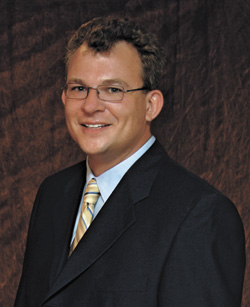There are several factors that can cause bad breath, and some of them are easier to fix than others. Bad breath can come from the foods you eat or the things you drink, and this is easily fixed with good oral hygiene and mouthwash. However, if your cause for bad breath is more than a temporary food-based problem, you could be dealing with more serious halitosis. Below, Flintlock Dental will take a look at the main causes for halitosis and some ways to treat it.
What is Halitosis?
Halitosis is a common health condition that affects nearly 30% of people around the world. It’s a more official term for “bad breath” and is usually used when describing a persistent problem rather than the smell that comes from eating too much garlic for lunch. It’s the presence of a foul odor that comes from the oral cavity, which could indicate an issue in the mouth, throat, or tonsils.
Halitosis is often caused by a group of anaerobic, sulfur-producing bacteria that breed beneath the surface of the tongue and in the throat and tonsil areas. These types if bacteria do not require oxygen to live (hence anaerobic) and often thrive in the oral environment as they help break down the protein in foods into amino acids. As long as these bacteria feed on the proteins you consume and excrete the sulfurous compounds, you can experience lingering bad breath if gone unchecked.
Causes for Bad Breath
There are four main causes for bad breath:
Dry Mouth – Xerostomia, also known as dry mouth, is the perfect environment for bacteria production. Long periods of speaking, smoking, drinking alcohol, or snoring are just some of the possible underlying causes. Many people experience bad breath as they wake up in the morning due to lack of saliva while they sleep. Healthy people reduce bad breath from food by simply having normal saliva flow. Those who suffer from dry mouth and lack of saliva will find that minor food odors can ultimately lead to long-term issues.
Poor Dental Hygiene – If you don’t take care of your mouth, it can lead to excess bacterial growth on your teeth and gums. Your teeth cannot shed skin like your mouth can, meaning bacteria will stay there and continue to grow, causing more problems the longer you don’t clean your teeth. If these bacteria are not removed, they will create dental plaque that grows on your gum line, causing damage to the teeth and gum tissue. This can lead to diseases like gingivitis and periodontitis that can exacerbate the foul odor in your mouth. Poor fitting or dirty dentures can also cause a bad odor.
Types of Food – There are certain foods, like onions and garlic, that contribute to bad breath, as they contain the sulfur compound linked to halitosis. Dairy, meat, and fish contain dense proteins that are used as a food source for anaerobic bacteria. Refined and processed sugars, coffee, and juices also help provide the perfect breeding ground for odor-causing bacteria.
Illness and Disease – An estimated 10% of halitosis is caused by some type of illness. Those who suffer from diabetes, lung disease, cancer, liver or kidney disease, or respiratory tract infections are more prone to chronic halitosis due to dry mouth. Other common illnesses that can affect mouth and nasal odor are tonsil stones, yeast infections of the mouth (known as thrush), and gum disease.
Medications – Certain drugs, such as some anti-depressants and antihistamines, can also cause foul breath due to dry mouth, as they reduce saliva production.
Treatments for Bad Breath
There are several ways you can treat bad breath naturally with home remedies and better oral hygiene. Here are a few things you can try to help eliminate your bad breath:
Proper Oral Care – Make sure you brush and floss your teeth twice a day. If you eat dairy, meat, or fish, try to brush your teeth after eating. Use a non-alcohol mouthwash regularly as well to help keep your mouth free of bacteria and bad breath.
Eat Foods Rich in Fiber – High-fiber foods, such as certain beans, veggies, and whole grains, are good at preventing halitosis. You want to avoid eating heavily processed foods that are high in refined carbohydrates and sugars, such as cookies, sweets, and ice cream.
Breathe Through Your Nose – Try to deal with any snoring or sleep apnea problems you may have. These issues could be causing you to breath more through your mouth at night (and will keep you from getting a restful night’s sleep!) Talk to your doctor to learn how to solve these problems. During the day, practice breathing through your nose as much as you can to prevent dry mouth.
Drink Water – Water is good for more than just hydration for your body. It’s also great at helping keep moisture in your mouth, thus preventing dry mouth and bad breath.
Stop Smoking – If you’re a smoker, this is another reason why you should consider quitting the habit. Studies show that smokers are at a higher risk for periodontal disease and halitosis.
Use an Oral Probiotic – This is something that your dentist can prescribe, or you can find some types over the counter. These K12 and M18 probiotics can help restore microbial balance to your mouth and prevent the overgrowth of odor-causing bacteria.
If you’ve tried some of these treatments and find that you’re still in need of something more for your bad breath, it’s best to consult with your dentist and see what they suggest you do to help treat and prevent it. The number one thing you can do to prevent bad breath, along with many other dental issues, is to brush your teeth twice a day!
